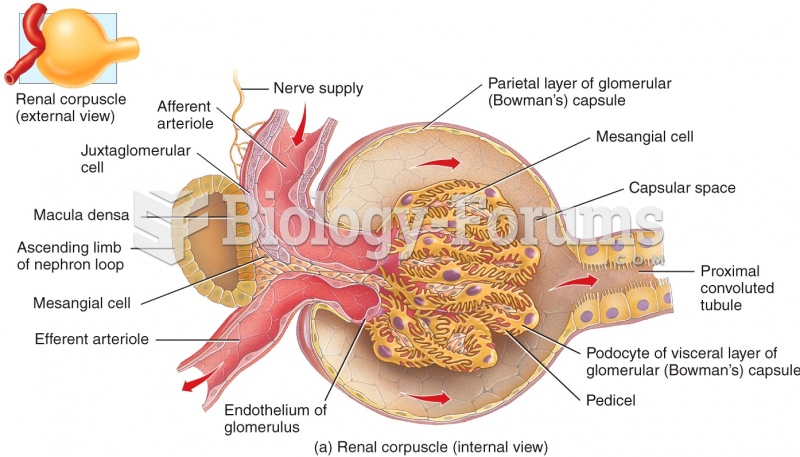|
|
|
The toxic levels for lithium carbonate are close to the therapeutic levels. Signs of toxicity include fine hand tremor, polyuria, mild thirst, nausea, general discomfort, diarrhea, vomiting, drowsiness, muscular weakness, lack of coordination, ataxia, giddiness, tinnitus, and blurred vision.
In 1835 it was discovered that a disease of silkworms known as muscardine could be transferred from one silkworm to another, and was caused by a fungus.
In 2012, nearly 24 milliion Americans, aged 12 and older, had abused an illicit drug, according to the National Institute on Drug Abuse (NIDA).
When blood is exposed to air, it clots. Heparin allows the blood to come in direct contact with air without clotting.
In 1864, the first barbiturate (barbituric acid) was synthesized.
 Leukemia. A blood smear from a patient suffering from leukemia demonstrates the abundance of enlarge
Leukemia. A blood smear from a patient suffering from leukemia demonstrates the abundance of enlarge
 Seven black members of Congress in 1871 are from left to right: Senator Hiram Revels (R-MS) and Repr
Seven black members of Congress in 1871 are from left to right: Senator Hiram Revels (R-MS) and Repr





